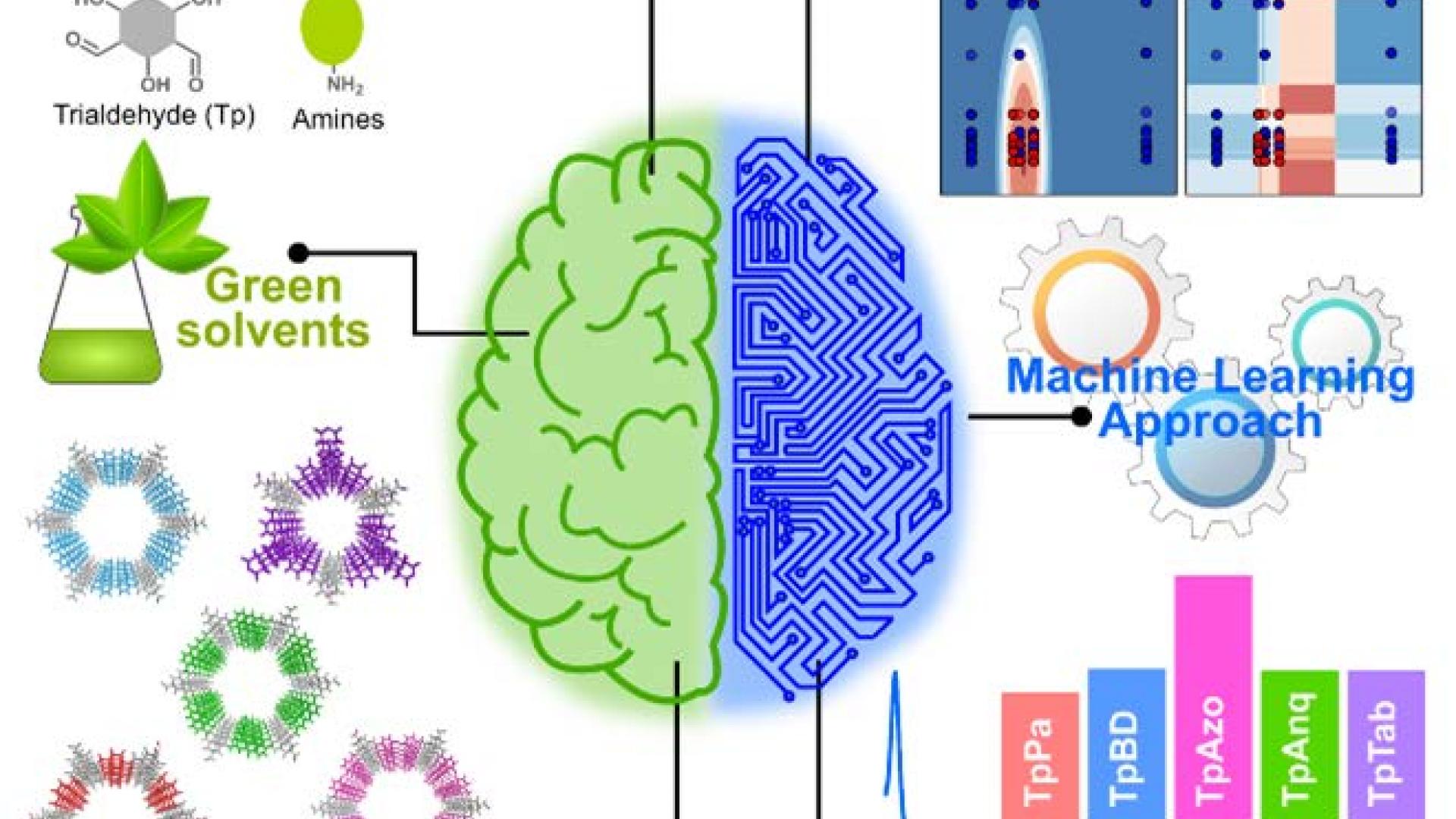Covalent organic frameworks (COFs) have attracted considerable interest owing to their structural predesign ability, controllable chemistry, long-range periodicity, and pore interior functionalization ability. The most widely adopted solvothermal synthesis of COFs requires the use of toxic organic solvents. In line with the 5th principle of green chemistry and the United Nations’ 12th Sustainable Development Goal, we aim to mitigate the adverse effect of solvents on COF synthesis. Here we have investigated twelve green solvents for the sustainable synthesis of five series of COFs using the solvothermal approach. Covalent organic frameworks have been prepared in green solvents utilizing a solvothermal method, and their porosity and crystallinity were predicted using QSPR and machine learning approaches. A real-world application showed the robustness of the model, which can be extended to design new COFs. The binary classification model is an excellent tool to predict whether a COF can be synthesized in an amorphous or crystalline form, while the surface area predictions were similar to the measured values.
Investigator:
